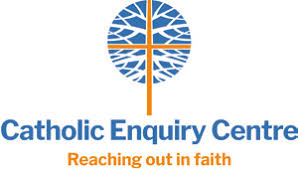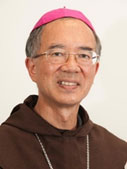 The turn to modern philosophy began in the 17th century when Rene Descartes penned those famous words “I think, therefore I am”. Later commentators have said that he should have said “I doubt, therefore I think, therefore I am”. Whether you agree with the commentator does not matter, because all philosophical thought begins with a foundational question. Descartes’ was “Is there anything which I can know with absolute certainty?”
The turn to modern philosophy began in the 17th century when Rene Descartes penned those famous words “I think, therefore I am”. Later commentators have said that he should have said “I doubt, therefore I think, therefore I am”. Whether you agree with the commentator does not matter, because all philosophical thought begins with a foundational question. Descartes’ was “Is there anything which I can know with absolute certainty?”
From the earliest time, questions have defined a people and shaped the individual. However, if we look at this, we find that some questions have led to greatness in a nation and others have led to downfall. Likewise, some questions have promoted personal virtue and others personal destruction. Our foundational questions emerge from issues which concern and preoccupy us. For example, one country’s main concern might be defence, another’s might be health. The first might place a larger than average part of its national income into armaments, while the second might establish a social health system. Both countries have identified values which define a national question. One becomes a super power, the other develops a social welfare system.
In the case of the individual, one person may be preoccupied with wealth and personal security, another with the care of others. The preoccupation specifies the question which shapes their lives. The average person has a number of issues which occupy his or her thoughts and at times consume.
Your questions reveal your inner issues. Spiritually, the reverse is important. We can address inner issues by fine-tuning our questions. For example, an inner impulse to know may be expressed through questions which are curious or through questions which search for the truth. Questions may express a noble intent; they may also refine our intent. Questions are very important because they both express and form the inner person.
St Thomas Aquinas was driven by the question to know and understand God. St Teresa of Avila was driven by two questions: to know and love Jesus; and how to live a life which transforms us into true friends of Jesus. The first question led her to God, the second sanctified her. The Chinese philosopher, Confucius, who claimed to know nothing about God, asked “what do we need to do to have an upright and good government, and how should individuals live so as to be virtuous?”
These are examples of useful, constructive questions. Sadly, many of us carry unproductive and often destructive questions -- questions for which there are no answers, or which lead us away from human perfection. I am not talking about the day-to-day questions of what to do next or what to eat or wear. I mean questions which are about meaning, and which are central to who we are.
The Gospel questions are a good place to start. “Who is my neighbor?”, “What must I do to inherit eternal life?”, “Who am I (Jesus)”, “Teach us to pray”, “Truth, what is that?”, “How many times should I forgive?” These questions provide a focus for a good life and the growing answers craft a good person. These questions are seldomly motivated by curiosity. They are questions which niggle, won’t go away and sometimes disturb. They can be the first responses to the Holy Spirit, who initiates a human journey through a question.
 The Catholic Enquiry Centre is established to help people answer the Gospel questions and questions concerning the Catholic faith. Its purpose is not simply informative, but is, I would suggest, more importantly formative. I hope that any person who approaches the Centre is beginning a journey into God. Questions establish a dialogue. One question properly answered leads to further questions which are often more profound. After tentative steps our horizons expand, we begin to see God, and we grow as people of love and truth.
The Catholic Enquiry Centre is established to help people answer the Gospel questions and questions concerning the Catholic faith. Its purpose is not simply informative, but is, I would suggest, more importantly formative. I hope that any person who approaches the Centre is beginning a journey into God. Questions establish a dialogue. One question properly answered leads to further questions which are often more profound. After tentative steps our horizons expand, we begin to see God, and we grow as people of love and truth.
 Words: Bishop of Lismore Diocese, Greg Homeming OCD
Words: Bishop of Lismore Diocese, Greg Homeming OCD
Email: info@catholicenquiry.com
Donate: To donate to the CEC, click here



